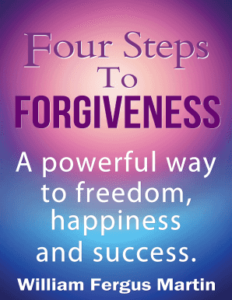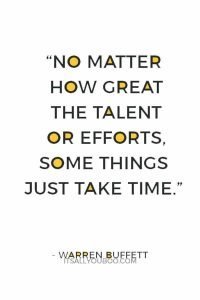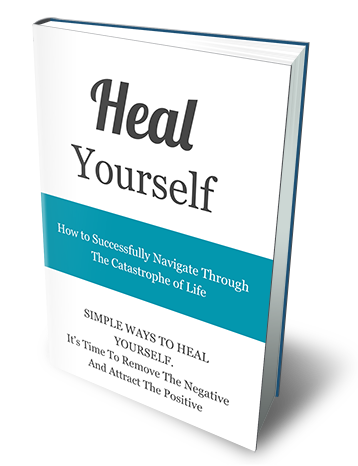Know Your Limits- Be Honest & Be Kind
TOC
Table of Content
Know Your Limits- Be Honest & Be Kind. “ A great man is always willing to be little. ” ― Ralph Waldo Emerson
A key aspect of the results of a Myers-Briggs Personality type test is the section that outlines your strengths and weakness. A lot of the mistakes we make and problems we encounter could have been avoided altogether if we were a little more knowledgeable about our limitations. Just think about an eager weightlifter who tries to lift too much, too soon.
What do you think will happen?
- Any rational individual will realize that the weightlifter is going to hurt themselves.
- Some will argue that this illustration is encouraging us to limit ourselves, and if we do, and stop pushing ourselves, we will never know our true potential.
- There is no limit to what you can achieve if you set your mind to it, and sometimes you will never know how strong you are until you try.
- You need to, however, ensure that reason and logic prevail when reaching out to achieve your goals.
- If you have never lifted 100 pounds, maybe starting with 20 pounds today would be a better idea.
- There is nothing wrong with thinking big, but I would encourage you to start small and work your way up.
- In essence, I am encouraging you to be modest in your expectations.
Modesty will not only help you to avoid setting unrealistic expectations, but it will also help you to set realistic time frames to achieve your goals.
- Many people become frustrated when they reach a certain age and have not achieved a certain goal.
- But just consider the contrast between Mark Zuckerberg and Colonel Sanders.
- Mark Zuckerberg founded his Facebook empire in his early twenty’s, but Colonel Sanders did not become the founder of Kentucky Fried Chicken (KFC) until he was in his eighty’s.
- Both men are considered highly successful, but each achieved success at different times.
- Maybe it’s just not your time or maybe you are just not in the right industry.
Choosing a career in a field you love, will help you to stay motivated and become successful.
- This theory is demonstrated in the lives of both of these men.
- Their success was a result of a passion for something they loved.
- A modest approach to life will also help you to avoid comparing your achievements to those of other people.
- Some people hit the ball out of the park on the first try, and others have to work their way up the ladder.
- Some will get married right out of college, others will have to wait a few years and kiss a few frogs before they find the right person.
- Both Mark Zuckerberg and Colonel Sanders experienced many setbacks on the way to success.
You will too.
- Do not expect that your life will be different.
- No matter what you hope to achieve, you are going to have to work harder than you have ever worked before, and you may have to wait longer than you expected too.
The beautiful quality of modesty extends far beyond becoming successful.
- This is a quality that will help you to stop biting off more than you can chew.
- You do not need to say yes to everyone.
- This applies both to your personal life, and at work.
- Don’t agree to unreasonable deadlines because you want to impress your boss unless you are 100% sure you will be able to complete the task.
- If you have been given an assignment, and you are unsure about how to get it done, do not be afraid to ask for help.
- If you work a full-time job and have a family to take care of, don’t commit to too much at your child’s school.
Know thy limits!
- This applies to your time, energy, emotions, and skills.
- Modesty works hand in hand with honesty, the next chapter will explain you can heal yourself and improve your life using this quality as well.
Be Honest
“Honesty is the fastest way to prevent a mistake from turning into a failure.” – James Altucher
- The only thing worse than a liar is a thief.
- Liars make life difficult and often do not realize the far-reaching effects of their actions.
- Lying makes us unhappy people, who constantly have to be covering our tracks and watching our backs.
- There are few things as toxic as a liar.
- We should never allow the negativity in this world to force us to become dishonest people.
- Lying will only put you closer to the door that leads to cheating and stealing.
- Quit while you are ahead.
Just think about the possible outcomes of a single act of dishonesty:
- Permanent damage to your reputation.
- Permanent damage to your relationships
- Loss of income
- Loss of self-respect
- Permanently damaging the reputation of another individual
- Feelings of guilt
- Loss of sleep
- Loss of trust
- If you research the word honesty, you find synonyms such as honor, sincerity, fairness, integrity, uprightness, virtue, and truthfulness.
Being honest requires more than not lying when in a difficult situation.
- Being honest requires being morally upright in all things.
- In other words, we will try to be truthful in all things and gain the trust of those around us, using our actions.
- But honesty is a very tricky thing. It is hard to list all the areas in which we need to be honest.
- A good rule of thumb if you are unsure if an act is honest or not, is whether you have to hide it or deceive someone into believing you did otherwise.
- If you will need to hide or cover your tracks after doing or saying something, you are probably not being honest.
The benefits of being honest far outweigh any challenges you may perceive as a result of this course.
- Think of the peace of mind of not having to rethink your every move or watching over your shoulder because you are constantly in fear of being found out.
- Imagine waking up and not being burdened by the heavy guilt as a result of your actions.
- And don’t be fooled into thinking that no one benefits from your honesty.
- It is very easy to become attracted to and to respect someone honestly.
- Most employers include that quality as being of the utmost importance when seeking recruits or considering a possible promotion of someone within their organization.
Being honest does not mean that we should volunteer all of our confidential affairs to everyone who is trying to pry into our business.
- Instead, we should not withhold relevant information from individuals who deserve a truthful answer.
- Being honest also means avoiding the various means that will pop up to get more than we deserve or leading someone to believe something about ourselves that is not true.
- There are, however, times when some of us might find ourselves in very catastrophic situations because we are thought of as being too honest.
- This is often the case when our words are not tempered with kindness.
- The next chapter will explore how that attribute can help us avoid a lot of the problems that can result from that sort of speech.
Be Kind
“Kindness is the language which the deaf can hear and the blind can see.” – Mark Twain
- Being kind means being warm, considerate, gentle, and friendly.
- To get a friend, you must be a friend.
- Even more, cliché is the saying, ‘birds of a feather, flock together.’
- If you want to attract happy, supportive people into your life, you need to be that kind of person.
- Why would anyone want to be around you otherwise?
- As the wise Maya Angelou highlighted, long after the memory of the interaction has faded, people will remember how that interaction made them feel.
When we are unkind, we make the lives of those around us much harder than it has to be.
- We make them feel unloved, underappreciated, and isolated when we are mean or unpleasant.
- Would you want anyone to treat you that way?
- Would you enjoy such harsh treatment?
- Don’t you think treating people that way at work, at school, or in your own home, makes your life a lot harder than it has to be as well?
- Kindness fosters a spirit of cooperation, even among people who do not know each other.
- Surrounding yourself with people who are willing to work alongside you is far easier than trying to conquer this world alone.
Being unkind envelopes a wide variety of actions.
- Our words are the most common form of unkindness.
- Being harsh, condescending, or even abrupt can be interpreted as unkind.
- Using your words to put others down and elevate yourself is not only unkind, but it is also a very selfish act, that often causes more harm than good.
- A key aspect of kindness is being polite.
- Let us take some time to learn more about this beautiful quality.
Why Be Polite?
- Being polite is not as hard as some people make it seem.
- While it is true that being polite is becoming increasingly difficult as a result of the negative attitudes of the people around us, it is not impossible.
- Being polite might inflate the ego of these individuals, but our being polite is not a reflection of them.
- Our being polite reflects positively on our character, come what may.
- Polite individuals are often thought of as kind, principled, professional, and pleasant.
- And with this very interconnected world that we live in, you just never know who you might have insulted.
- Just imagine how embarrassed you will be if you show up for a job interview, only to realize that the man you just cursed in the parking lot because you think they parked in ‘your’ spot, is the interviewer.
- Trust me, it has happened many times before and could happen to you.
Being polite involves being respectful and considerate of the needs, feelings, time, resources, values, and cultural norms, of others.
- Being polite and kind will make you very likable and will encourage others to reciprocate your consideration.
- Another benefit of being polite is that it will make it very easy for you to gain the respect of those around you.
- Even if they do not instantly change their behavior, they will be forced to respect you and your standards.
- Eventually, they may change for the better as a result of your efforts.
- Wouldn’t life be much easier if we all had jobs in which our employees, subordinates, and colleagues, all treated us with respect?
- Respect has to be earned and being polite is one of the easiest ways to earn it.
How to be Polite and Kind?
- If you have nothing kind to say, don’t say it, post it on social media, or even think it. Even words that are whispered to a friend have been known to turn around and bite you.
- Don’t be stingy with greetings and salutations. If you enter a room, pleasantly greet all present. When you are leaving, kindly excuse yourself. And if you are greeted, respond warmly and with a smile.
- Do not criticize the efforts of others, especially when it is obvious that they tried very hard to accomplish a particular task. If you must offer some constructive criticism, sandwich it with some genuine commendation.
-
Be appreciative of the efforts of others. Even if what is presented is not to your liking, there is no need to make it known.
- Try to learn a little about the cultural norms and beliefs of those around you. You do not have to share their views, you simply need to know enough not to unintentionally offend them. It is also most polite to allow them to freely express these views, without fear of being disrespected. You can always agree to disagree.
- You do not always have to insist on things being done your way. Give someone else a chance to shine now and then.
- Don’t monopolize conversations by speaking only about yourself and your accomplishments. Show personal interest in others by asking them about themselves and listening to what they have to say.
- When someone is speaking to you, give them your full attention. Stop walking, typing, or whatever else you are doing, and make eye contact. If you are busy, politely pause, evaluate how long the conversations need to be, assure them that you value what they have to say, and then arrange a more suitable time to continue.






